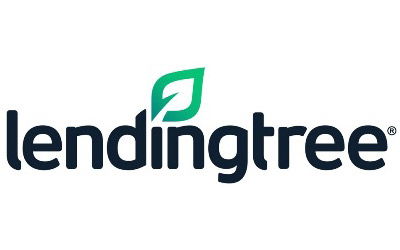Think your credit score is too low to buy a home? If you’re a veteran, active-duty service member, or eligible surviving spouse, a VA loan could still make it possible.
Backed by the Department of Veterans Affairs, VA loans offer flexible credit requirements and key benefits that make homeownership more accessible—even if your credit isn’t perfect.

This guide will show you how VA loans work, what lenders look for beyond credit scores, and practical steps you can take to improve your odds of approval. With the right strategy and lender, you can move closer to buying a home and building long-term stability.
VA Loan Benefits for Borrowers With Bad Credit
VA loans are specially designed to support veterans, active-duty military members, and eligible surviving spouses in achieving homeownership. These loans offer several unique benefits that make them more accessible, particularly for those who might face obstacles with traditional loans.
A VA loan provides several major advantages that can make homeownership more attainable. Key benefits include:
- No down payment: Unlike most conventional loans, VA loans don’t require a down payment, which can be a relief for those who haven’t saved a large upfront amount.
- Lower credit score requirements: VA loans have more lenient credit requirements compared to traditional mortgage options, making them a good choice for borrowers with lower credit scores.
- No private mortgage insurance (PMI): Since the VA backs the loan, borrowers aren’t required to pay PMI, which can save hundreds of dollars each month.
Who issues VA loans?
While the Department of Veterans Affairs backs VA loans, it doesn’t issue them directly. Instead, private lenders like banks, credit unions, and mortgage companies issue VA loans, and the VA provides a guarantee on a portion of each loan.
This guarantee minimizes the lender’s risk, which often leads to more favorable loan terms for veterans. Essentially, the VA stands behind these loans, making lenders more comfortable working with buyers who may not meet conventional loan requirements.
Eligibility for a VA Loan
VA loans offer an accessible path to homeownership, but there are specific eligibility requirements that determine who qualifies. These guidelines are based on military service, reserve status, and family connections.
Who qualifies?
VA loan eligibility is extended to a range of military-affiliated individuals, including:
- Veterans: Those who have completed active-duty service and received an honorable discharge.
- Active-Duty Service Members: Generally eligible after six months of continuous service.
- National Guard and Reservists: Typically qualify after six years of service or 90 days of active-duty service during wartime.
- Surviving Spouses: Unmarried spouses of service members who passed away in the line of duty or from a service-related injury may also qualify.
Additionally, qualifying family members and those meeting other specific conditions may be eligible. For the exact details of your eligibility, obtaining a Certificate of Eligibility (COE) from the VA is the first step.
Primary Residence Requirement
VA loans are designed for primary residences, which means you’ll need to intend to live in the home as your main residence. This rule generally requires that you move into the home within 60 days of closing.
Exceptions can be made on a case-by-case basis, especially for active-duty service members who may be deployed or face other unique circumstances. In those situations, the VA may allow for a delayed move-in date, but they will typically require a clear plan for eventual occupancy.
VA Loan Credit Score Requirements and Other Approval Factors
One of the standout features of VA loans is that they don’t have a strict minimum credit score requirement set by the Department of Veterans Affairs.
Minimum Credit Score
While the VA itself doesn’t require a specific credit score, most lenders prefer applicants to have a credit score of at least 620. Some lenders may consider applications with lower scores, especially if other financial factors are strong. Since each lender has its own standards, shopping around can be helpful if your credit score is on the lower side.
Other Key Financial Criteria
In addition to credit scores, lenders look at various other financial factors when evaluating VA loan applications. These criteria help lenders assess overall financial health and the likelihood of timely mortgage payments.
- Debt-to-income ratio: Lenders pay close attention to your debt-to-income (DTI) ratio, which compares your monthly debt obligations to your gross monthly income. A lower DTI ratio, typically under 41%, indicates financial stability and shows that you’re less likely to struggle with mortgage payments. Higher DTI ratios can raise red flags, but strong credit or other factors may offset them.
- Free cash flow: Lenders evaluate the amount of free cash flow you have left each month after covering essential expenses like taxes, insurance, and debt payments. More free cash flow suggests greater financial flexibility, which can strengthen your application.
- Job stability: A consistent work history, ideally two years or more with the same employer, can improve your loan application. Lenders view stable employment as a positive indicator that you’ll be able to meet mortgage payments over time. Job changes aren’t necessarily disqualifying, but having a steady income source is key.
- Evidence of credit improvement: Recent positive credit activity, like making on-time payments or reducing debt, can make a strong case to lenders, even if your overall credit score isn’t high. If you’ve been enrolled in a credit counseling plan or have shown consistent improvement, lenders may consider you a lower risk.
Past Bankruptcies and Foreclosures
If you’ve had a bankruptcy or foreclosure, you can still qualify for a VA loan once certain waiting periods have passed. Most lenders require at least two years after a Chapter 7 bankruptcy discharge or foreclosure, and one year after a Chapter 13 bankruptcy with court approval.
Once you meet these requirements and demonstrate recent positive credit activity, you may be eligible to apply for a VA loan.
VA Loan Fees and Closing Costs to Expect
VA loans can save you thousands with no down payment or private mortgage insurance, but they aren’t entirely fee-free. You’ll still need to budget for a funding fee and standard closing costs. Knowing what to expect can help you plan ahead.
Funding Fee
The VA funding fee is a one-time charge that helps sustain the VA loan program. The fee depends on your down payment, loan type, and whether this is your first VA loan. For first-time users with no down payment, it typically equals 2.3% of the loan amount. A down payment of 5% or more can reduce the fee to about 1.65%.
Some borrowers are exempt, including veterans with service-connected disabilities, Purple Heart recipients, and certain surviving spouses. If you qualify, this exemption can significantly lower your upfront costs.
The funding fee is usually rolled into the loan, so you don’t have to pay it upfront. Just remember this will slightly increase your monthly payments.
Other Fees and Closing Costs
VA loans also come with standard closing costs, including appraisal, title, credit report, and administrative fees. These costs generally range from 2% to 5% of the loan amount.
To offset some of these expenses, VA borrowers can request up to 4% in seller concessions. Some lenders also offer options to roll certain closing costs into the loan, though this can increase your interest rate.
VA Loan Refinance Options to Lower Your Costs
VA loans offer two valuable refinancing options that can help lower your monthly payments or free up cash: the Interest Rate Reduction Refinance Loan (IRRRL) and the Cash-Out Refinance Loan.
Interest Rate Reduction Refinance Loan (IRRRL)
Also called a VA Streamline Refinance, the IRRRL helps borrowers with an existing VA loan secure a lower interest rate or switch from an adjustable-rate to a fixed-rate mortgage. To qualify, your refinance must result in a clear financial benefit.
The IRRRL process is streamlined—often requiring no appraisal, credit check, or extensive paperwork. Most fees can be rolled into the loan, so many borrowers complete this refinance with little or no upfront cost.
Cash-Out Refinance Loan
A VA Cash-Out Refinance lets you turn your home equity into cash, which you can use for expenses like home improvements or debt consolidation. This option is open to both VA and non-VA loan holders.
With a Cash-Out Refinance, you may be able to refinance up to 100% of your home’s appraised value, subject to lender requirements. This process involves a full application, credit check, appraisal, and closing costs. The flexibility to access your home’s equity makes this a powerful tool for achieving larger financial goals.
Other Home Loan Options for Veterans With Bad Credit
If a VA loan isn’t the right fit, or you’re looking for additional options, there are other loan programs available for borrowers with lower credit scores. Options like FHA and USDA loans may offer a path to homeownership, even with less-than-perfect credit, and there are also specific programs that provide assistance to veterans.
FHA Loans
Federal Housing Administration (FHA) loans are a popular choice for buyers with lower credit scores or limited down payment funds. FHA loans typically require a minimum credit score of 500, though a score of 580 or higher may qualify you for a reduced down payment of just 3.5%. FHA loans also have more flexible debt-to-income requirements, which can make qualifying easier.
One of the advantages of an FHA loan is its backing by the government, similar to the VA guarantee, which helps make lenders more comfortable working with lower-credit borrowers. However, FHA loans do require mortgage insurance premiums (MIP), which will add to monthly payments. Despite this, FHA loans remain a solid alternative for those needing accessible mortgage terms.
USDA Loans
The U.S. Department of Agriculture (USDA) offers a loan program for those willing to purchase homes in designated rural areas. USDA loans generally require a minimum credit score of 640, although exceptions may be made on a case-by-case basis. These loans offer competitive interest rates, no down payment, and reduced mortgage insurance costs, making them affordable for those who qualify.
USDA loans are ideal for borrowers open to rural or suburban living. If you’re willing to live outside major city areas, a USDA loan can be a valuable option with lenient credit and income requirements.
Other Programs for Veterans with Bad Credit
Veterans with low credit scores may also have access to state-sponsored programs or non-profit assistance. Many states offer home loan assistance programs for veterans, which may provide down payment assistance, lower interest rates, or flexible credit requirements. Non-profit organizations such as Operation Homefront and the PenFed Foundation sometimes offer grants or other forms of financial support tailored to veterans.
These programs vary widely by location, so checking with local housing agencies or veteran service organizations can help identify programs that meet your needs. Taking advantage of these resources can expand your options and may reduce the overall cost of buying a home.
How to Start Your Search for VA Lenders
Finding the right lender is essential when applying for a VA loan, especially if you have a lower credit score. Some lenders specialize in working with veterans and are more flexible with credit requirements, making them better equipped to help you secure a loan.
Choosing the Right VA Lender
When looking for a VA lender, start by focusing on lenders that have experience with VA loans and a history of working with borrowers who may have credit challenges. Here are some tips to help with your selection:
- Look for VA loan expertise: Choose VA lenders who specifically advertise their VA loan experience. They’re often more familiar with the unique requirements of VA loans and can streamline the process.
- Check credit flexibility: Not all lenders apply the same credit standards. Look for lenders who advertise lower credit score requirements, such as accepting scores around 620 or lower on a case-by-case basis.
- Compare loan terms and fees: Even with a VA loan, lenders can set their own fees and rates. Take time to compare these factors to ensure you’re getting favorable terms.
- Read reviews from other veterans: Reviews from other veterans can offer insights into the lender’s customer service, response time, and how they treat applicants with lower credit.
Recommended VA Lenders for Bad Credit
Here are a few lenders known for their flexibility with VA loans and their experience working with veterans:
Rocket Mortgage
Rocket Mortgage has been working with customers to provide a home buying experience with minimal human interaction. They provide a wide range of home loans and allow you to compare your options easily.
LendingTree
LendingTree is not a lender, but the company can connect you to countless mortgage lenders across the country. They’ll match you to your options based on your credit score, debt-to-income ratio, and more.
It is a great resource to find several lender options within just a few minutes. If you want to compare many of your options easily, then LendingTree is a great place to start.
New American Funding
New American Funding may be the best option for veterans with poor credit. The company works with customers to individually review each loan application and the entire underwriting process.
It may take longer to close if you are working with a human underwriter. However, if you have a poor credit history, the reviewer may be able to stay flexible and push for an approved application.
Find out more about New American Funding in our full review.
Navy Federal Credit Union
Navy Federal Credit Union works to provide a great banking experience to military members of any branch. Naturally, the credit union works with veterans to secure VA home loans on a regular basis.
How to Improve Your Credit Before Applying for a VA Loan
If your credit score is holding you back from securing a VA loan, taking a few key steps now can improve your credit score and boost your chances of approval—and may help you qualify for better loan terms.
Start by reviewing your credit report and correcting any errors. Pay all bills on time and focus on reducing outstanding debts. Avoid applying for new credit while preparing for your VA loan. If needed, consider working with a reputable credit repair company to address more complex issues.
6 Steps to Strengthen Your Credit Before Applying
- Check your credit reports: Review reports from all three credit bureaus and dispute any errors you find.
- Pay bills on time: On-time payments have the biggest impact on your credit score.
- Pay down debt: Lower your credit card balances to improve your credit utilization ratio.
- Limit new credit inquiries: Avoid applying for new credit cards or loans while preparing for a mortgage.
- Consider a credit repair company: If you’re dealing with multiple credit issues, a reputable credit repair company can help identify and dispute inaccurate items on your credit report. This can be especially useful for addressing complex credit problems that are harder to tackle on your own.
- Monitor your progress: Use free credit monitoring tools to track your score and stay motivated.
Even small improvements can make a difference. The more progress you make before applying, the more options you’ll have when working with VA lenders.
Bottom Line
A VA loan can be a powerful tool for buying a home, even if your credit isn’t perfect. With flexible credit requirements and no down payment, it offers a real path to homeownership for veterans and service members.
If your credit needs work, focus on steady improvements now—pay down debt, correct errors on your credit report, and build a history of on-time payments. At the same time, connect with VA lenders who understand how to work with borrowers in your situation.
The sooner you take these steps, the closer you’ll be to securing a VA loan and achieving your homeownership goals.
Frequently Asked Questions
How much can I borrow with a VA loan if I have bad credit?
The VA does not set loan limits, but how much you can borrow depends on your lender, income, credit profile, and debt-to-income ratio. Having bad credit may limit the loan amount you qualify for, as lenders will want to ensure you can comfortably afford the monthly payments. Strengthening your credit and reducing existing debt can help you qualify for a higher loan amount.
Will a lower credit score affect my VA loan interest rate?
Yes, your credit score can impact the interest rate you receive, even on a VA loan. While VA loans typically offer competitive rates, borrowers with lower credit scores may be offered slightly higher rates than those with stronger credit. Shopping around with multiple VA lenders can help you find the most favorable rate based on your current credit profile.
Can I get approved for a VA loan with no credit score?
It is possible to get a VA loan with no credit score, but it depends on the lender. Some lenders offer manual underwriting, which allows them to evaluate alternative credit data, such as rent, utility, and insurance payment histories. If you have little or no traditional credit history, look for VA lenders experienced with manual underwriting to improve your approval odds.
Can I use a VA loan to buy an investment property?
VA loans are intended for primary residences only. This means you must intend to occupy the home you are buying with a VA loan. However, there are certain scenarios where you can rent out part of the home, such as purchasing a multi-unit property and living in one of the units while renting the others.
What should I do if my financial situation changes drastically after getting a VA loan?
If you experience a significant change in your financial situation, such as a job loss or medical emergency, it’s important to contact your lender immediately. Lenders can sometimes provide options such as forbearance, loan modification, or other forms of assistance to help you manage your payments during financial hardships. Additionally, contacting a VA loan counselor can provide guidance and potential solutions specific to VA loans.








